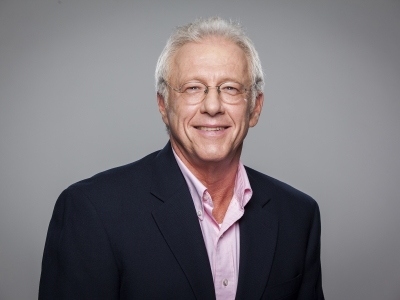Humor, storytelling, and empathy: Dr. Joe Albert on what makes a leader stand out
January 10, 2023

By Lindsay Key
In order to effect change in the field of sustainability, leaders must be able to communicate clearly and effectively. With this in mind, the Master of Natural Resources program requires all students to take the core course called Leadership Communication for Sustainability Professionals. Dr. Joe Albert, a Professor of Practice in the MNR, has been teaching the course since 2021. Albert brings more than 25 years of experience as a professor, administrator, trainer, and coach. He holds a doctorate in leadership studies and a master’s degree in counseling psychology from Gonzaga University, and an undergraduate degree in business management from St. Joseph’s University in Philadelphia.
From 1994 to 2004, Albert served as chair of the Department of Leadership Studies at Gonzaga University, and from 2017 to 2019 he served as dean of the School of Leadership Studies at Gonzaga University. In 2019, Albert launched a coaching, consulting, and training practice, specializing in leadership development, strategic planning, storytelling, emotional intelligence, and leadership talent development. He is a certified executive coach through the Hudson Institute of Coaching and the International Coaching Federation, and is also certified with the EQ Profile, an emotional intelligence instrument for individuals and teams offered by Learning in Action Technologies.
We sat down with Albert to ask him more about his career path, and why he believes that developing leadership communications skills is so important for sustainability professionals.
Lindsay Key: When did you know that you wanted to focus your career on leadership communications?
Joe Albert: My appreciation for the importance of communication for leaders has been a gradual process over the past fifteen years. My first true exposure to this field of study was when I worked with another faculty member to gain approval for a new master’s degree in leadership communication at Gonzaga University. We already had a master’s in leadership but the newly proposed degree included a strong emphasis on communication as well. In 2009 I began teaching a new course, “Leadership and Storytelling,” and that was an experience in seeing the critical role that communication plays in being an effective leader. Finally, after I was certified as an executive coach, I found most of my clients struggled with knowing how to present a concise and impactful message to both their employees and their own superiors.
Lindsay Key: How has your teaching career influenced your role as an executive career coach?
Joe Albert: It has been both a blessing and a curse. When I work with clients, I often find myself in a teaching role, and this, of course, is not what a good coach should be doing. Many of my clients find value in lessons I share, but I know the focus of my work as a coach is to ask the right questions and always let the client lead the sessions. I’m a work in progress as a coach.
Lindsay Key: Can you provide some examples of leaders you admire?
Joe Albert: So many of the leaders I admire come from my own experience. I’m working on a book right now and I find myself sharing lots of stories about bosses, good and bad, that I have had over the years. As I thought about how to respond to this question, I realized that the “right” answer would be to name famous people that we all admire. But I am drawn to leaders who are flawed in some way or who struggle with their own inner demons. For example, Abraham Lincoln would be at the top of most lists of great leaders. He is certainly at the top of mine, but he’s high on my list because of his longtime battle with depression or melancholy. He became a great orator and a great president through a process of learning to cope with his depression. He found that telling stories, using humor, and developing an incredible capacity for empathy eased the influence that depression had on him, and it also provided him with skills that made him such a great leader.
Though I have had the incredible opportunity to meet great leaders like Mother Theresa, Caesar Chavez, and the late Tom Foley, who was Speaker of the House for many years, I noticed in my book that I begin with a story about a boss I had who was the general manager of a car dealership in New Jersey where I worked briefly after college. His name was Ned and he was the general manager at a very large dealership. He was incredibly decisive, handled conflict well, consistently held others accountable, and in our one-to-one conversations he would have tears flowing down his face as he shared memories of his late wife who had just passed away. My father had also just died, and we could sit in his office and grieve together. I will never forget that experience, or what he taught me about leadership.
Lindsay Key: Why do you believe it’s important for students in a natural resources graduate program to study leadership communications?
Joe Albert: I think it is more important than most students will realize. Once you immerse yourself in this critical and dynamic field you begin to see the pervasive nature of leadership communication and how critical it is to the success of any effort.


